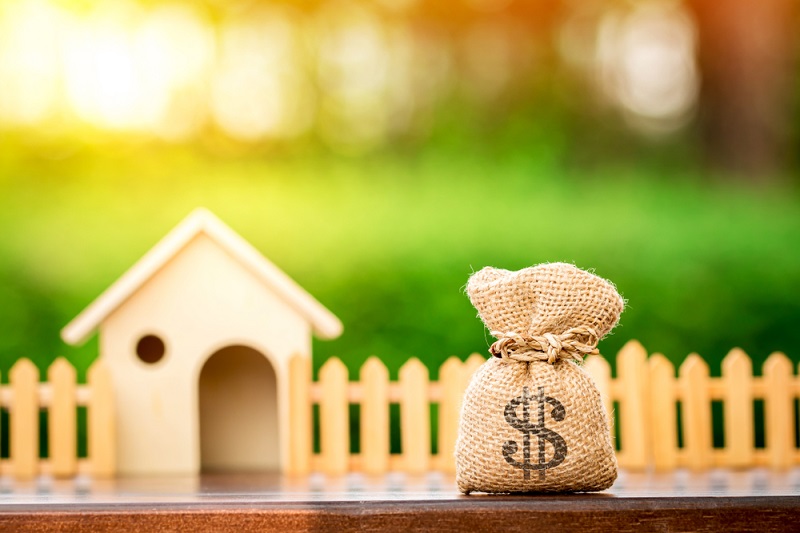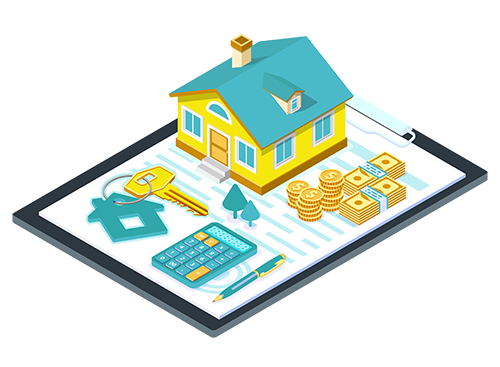2020 has certainly been a year of many adjustments, and it has certainly thrown a lot of budgets out of wack. Saving for a big ticket item, like a new home, has lost its place on the budget priority list of all too many people this year. But how about some good news for those of you looking to call a house your very own? If you’ve been looking to save up for your first home, there are plenty of ways to make it happen – even with all the craziness of our current economic climate. There’s no need to let anything stand in the way of your home-owning dreams! With baby steps and some careful planning, you can make anything a reality.
Financing your first home will require you to sit down and discuss your financial goals and current expenditures/income with yourself, your partner, or your family. Something this big doesn’t always come easy, but the reward is very worth it. Here are some simple guidelines to follow when you’re getting started on the big plan.
- Be smart with your money – make a plan. This one seems obvious, but it’s important to start out your financial planning by thinking about a logical plan! When you have a realistic goal in mind and remember why you’re saving up (and consider all the benefits that come with owning your home), it’s a lot easier to follow through and make certain sacrifices. Sure, it’s easy for us to advice that you just eat canned beans and cut costs however, and wherever, you can. But you don’t need to force yourself to live just above the poverty line in order to buy your first home.
Just think about what you’re spending money on and try to rein back unnecessary expenditures. Can you cut down to just one online streaming service? What about working out at home instead of going to the gym? If a certain option is going to make you miserable, though, think about cutting back somewhere else. Emotions play a big role in our spending, so make sure you are taking care of yourself and setting your personal priorities – you’ll be less likely to splurge. Consider your health. Maybe you can cut back on alcohol and keep the yoga studio membership. Saving for a first home is going to look different for everybody.
The synopsis: know where your money is going by tracking your spending. Opt for cheaper options when making purchases. Do your research. And make sure to put whatever you end up saving aside for your home loan.
- Pay off any outstanding debt (before you make more!). Are those credit card and loan repayments looming over your head? The sooner you pay off your debt, the more you’ll save. By opting to do this early on, you could save yourself thousands of dollars. This should absolutely be a priority when you’re saving up for your first home.
- Create a second income stream. If this seems next to impossible for you, it may be time to reframe your thoughts. Almost everyone can make a second income stream! You may even be able to live off your primary income and save everything from the secondary income for your down payment. Think about any extra skills you have. Are you really good with technology? Offer services as a computer guru. How about graphic design? Consider doing some marketing work on the side. Another simple option is dabbling in freelance writing – there are plenty of options for that as more and more companies try and increase their online presence.
- Renegotiate your current rent if possible. Is there a way for you to get cheaper rent? Quite possibly! Think about moving to a place that costs $50-100 less per month – that’s an extra $1200 a year. It really does add up! Or, if you really want to cut costs, consider moving back in with your parents or in-laws for a while. It might not be the most ideal situation, but you won’t need to deal with a landlord and you’ll have a decent chunk of cash to set aside for financing your first home. You could even keep “paying your rent,” but put it into a savings account instead of in the hands of a landlord. And speaking of savings accounts…
- Try using a high-interest savings account. This is one of the easiest passive ways to gain some extra income. Because you don’t spend money from a savings account, it’s a lot harder to dip into your savings. If you do your research and look for an account with a higher interest rate and no fees, you’ll be able to grow your savings faster.
- Automate your savings, stick to it! The classic “set and forget” money transfer is a great way to automate the growth of your savings without needing to make a conscious effort every month to remember to deposit money into your savings account. You can also ask your employer to transfer part of your pay, or you can set up a direct debit yourself. Either way, this is a great option to keep things moving in the savings department and keep things simple.
- Round up transactions. Some savings accounts let your round up your daily transactions to the nearest $1 or $5. The change will then go directly into your savings account. This is a great way to easily “forget” about putting money into your savings account. It’s a small amount that you probably won’t notice right away, but over time it certainly adds up! That extra 50 cents from your morning coffee purchase won’t even be missed.
- Look into investment opportunities. If you’re still several years out from buying your first home, consider investing in shares or a managed fund. There is obviously some risk involved here, so be careful and make sure to check in with a financial advisor! When done right, however, investing is a great option to see more rapid growth in your savings.
See, doesn’t this all seem pretty manageable? Financing your first house can certainly seem daunting, but it doesn’t need to be! Take small practical steps right now and before you know it, you’ll be holding the keys to your very own home.



